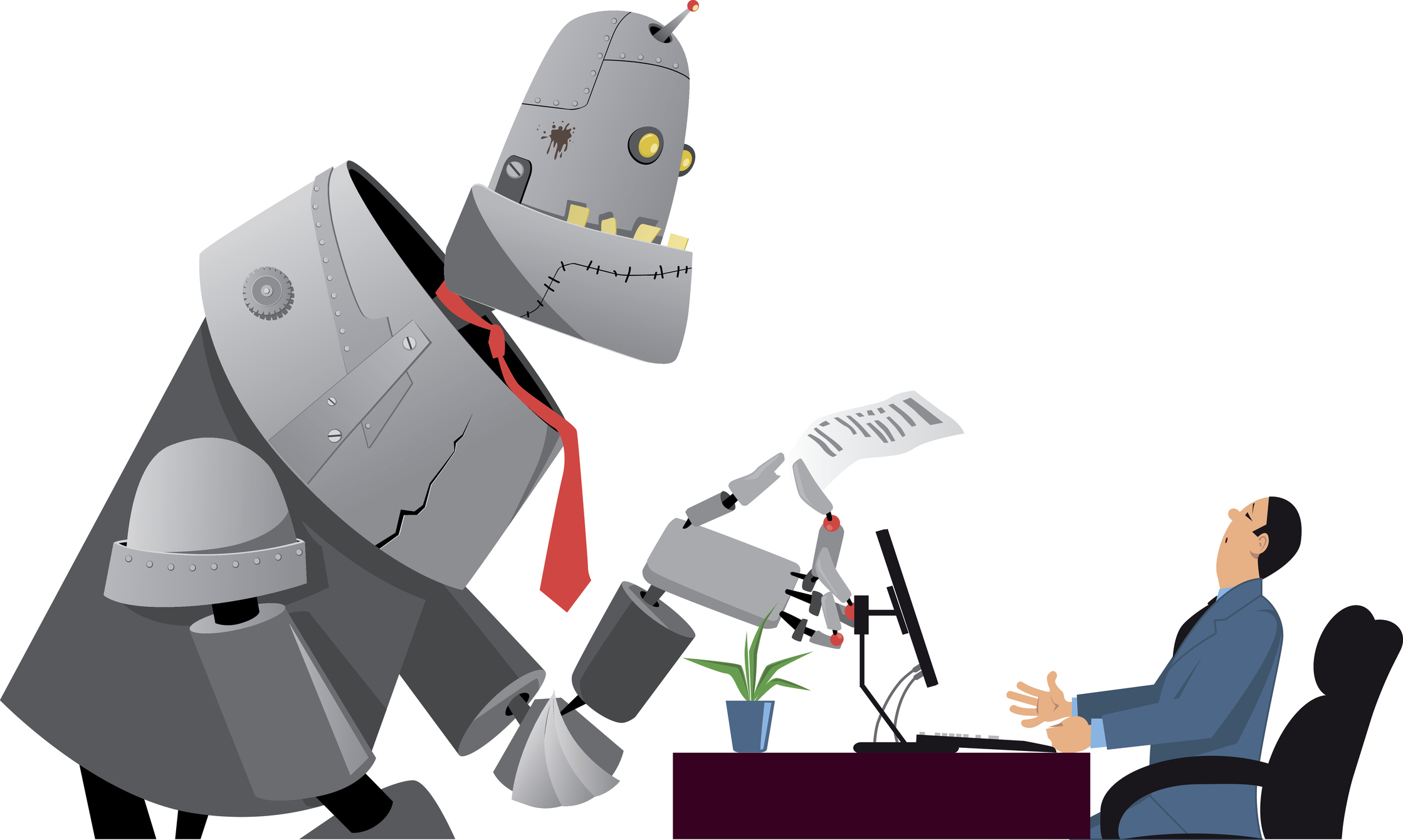As technology increasingly enters our personal and professional lives, it’s inevitable that someday many of us will work alongside robots. But how would you feel about an artificial intelligent boss?
A survey of 1,000 British workers found that one third (31 percent) would be happy working for a robot boss. The cloud accounting software provider FreeAgent conducted the survey, which also found that 42 percent of workers would be “comfortable” taking orders from a robot boss.
“Although it might be many years before we see physical robots taking over the workforce, many workers are already anticipating the changes that automation will bring in the years ahead,” commented Ed Molyneux, CEO and co-founder of FreeAgent.
Eleven percent of survey respondents believe robot bosses would be “more efficient” than a human counterpart, while 10 percent of those surveyed said working for a robot boss would be similar to working for a human one.
Interestingly, men wore more open to having a robot boss than women, with 48 percent saying they would take orders from a robot, compared to just 36 percent of women.
If robot bosses became the norm, would they (or more accurately, their owners) earn a salary? And what about taxes? Most survey respondents (57 percent) agreed with the following statement: “If they’re replacing the role of a person, the company owning the robot should be taxed the same.”
Yet, 43 percent believe robot bosses should not be subjected to taxes because “it would set a precedent, as other technology doesn’t get taxed like a person.”
“The shifting landscape of AI and new technology will have a major impact on people in employment, but I don’t think that this is a gloomy outlook for the workforce,” noted Molyneux. “Previous research we’ve carried out has suggested that many employed people are keen to quit their jobs and start their own businesses. So as automation takes a more prominent role in the workforce, it’s likely we could see a self-employment boom in the future.
It’s unclear whether robot bosses will be better than human ones. Good bosses possess many skills that may be difficult for artificial intelligence to relate. For example, strong leaders are passionate about their work, motivational, inspirational, encouraging, and compassionate. They care about their employees and act as mentors. Can a robot boss be programmed to embody these traits?


